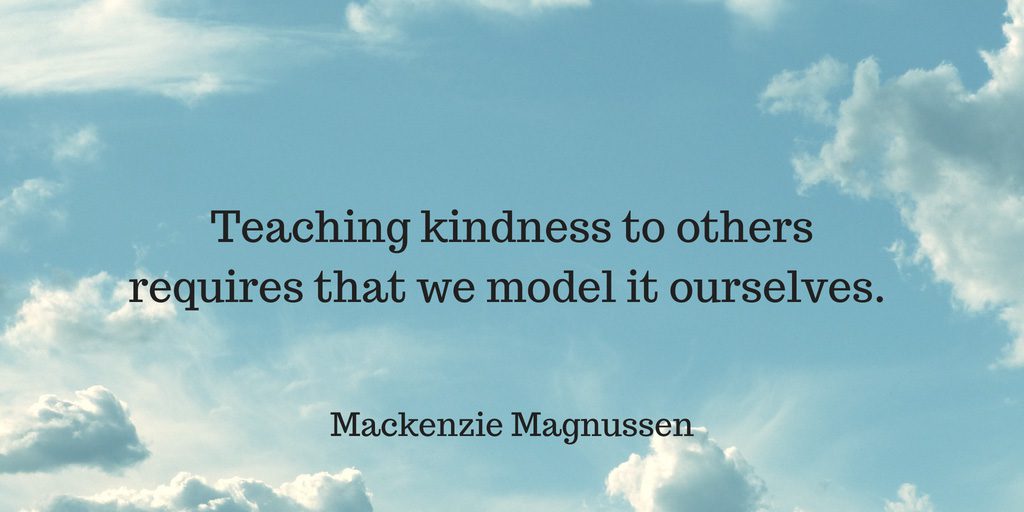Teaching kindness to others requires that we model it ourselves. When I was younger, my mother exposed me to a variety of situations and people, teaching me how to be kind to everyone and to respect others always. My parents demonstrated support, acceptance, and inclusivity of others, and I quickly learned that everyone deserves to be treated with respect. When my parents gave me positive reinforcement for my actions, it made me want to keep being kind to others, knowing that I was doing a good thing.
The best way for my school and community to practice kindness is to thank others for their efforts and actions. Although verbal appreciation seems like it might be brief or forgettable, people do remember the gratitude of others. I know from experience that when teachers thank students for their work and efforts in class, it makes them feel that the amount of time and energy they put into their assignments is worthwhile and valued. When someone performs a kind gesture for a friend, sincere thankfulness is the best gift that person can receive in return. It makes people feel that they are spreading the kind energy of compassion to others. Personally, I know that people who acknowledge me for my hard work and commitment make me feel overwhelmed with appreciation. To know that my efforts are not going unnoticed, that someone else is thankful for my actions, makes me feel that I truly am doing something that is bettering someone else’s life in a way that is significant to them.
Sometimes, however, we have to practice kindness and tolerance in the midst of situations in which we might feel very underappreciated or disrespected. I work at a busy, popular restaurant in my community. As in every restaurant, now and then a dissatisfied customer will become frustrated or impatient. I practice a “customer service attitude”, meaning that regardless of their anger, I act politely and do everything in my power to resolve the situation. I know that everyone has bad days; while this does not justify discourtesy, it often explains it. If my community members and classmates practiced this kind of mindset, understanding that everyone undergoes different challenges, I think that people would be more understanding and empathetic of those who may take their anger or frustration out on others. We must be kind, even in the face of unkindness, in order to change the way people communicate with one another in our communities.
In my life, I strive to constantly practice gratitude and compassion to others. I believe that in doing so, I will inspire others to take more time and effort to appreciate the people around them and all that those people do. I aim to model a tolerant and patient attitude for other people and encourage them to think about the context and circumstances of a person’s actions before judging them or becoming frustrated with them. To model empathy is to lead others, and to give gratitude is to inspire further kindness through acknowledgement.

